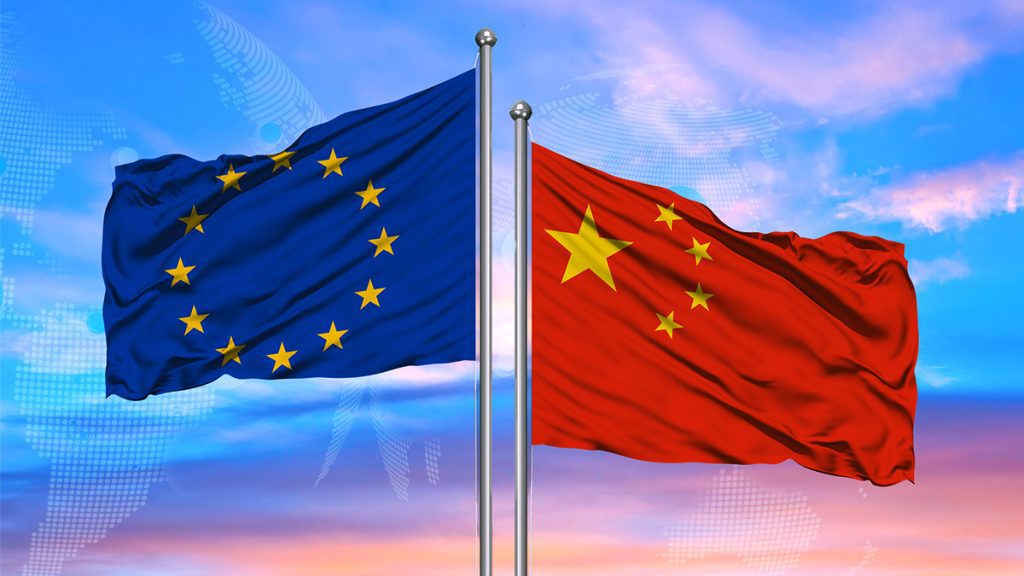
The Sino-European relations are on shaky grounds as the EU is mulling over sanctions.
- Anti-Foreign Sanctions Law makes it so China will respond to any sanctions imposed on it that could hinder its trade.
- The Blocking Rules allow retaliation in the case of unjust and harmful extraterritorial applications of the law.
- China will also hit countries where it hurts considering it specializes in intelligent tech.
The European Union is none too happy with a number of Chinese companies’ alleged involvement in the Russian-Ukraine war. Financial Times recently reported that “Brussels has proposed sanctions on Chinese companies for supporting Russia’s war machine for the first time since the war in Ukraine began.” According to another Financial Times article, China’s foreign minister warns of countermeasures in defense of its companies. Tensions are high and Sino-European relations are in danger.
Never One to Take Sanctions Lying Down
In a previous article, I discussed with you how some countries find themselves subject to sanctions and how they quickly learn to go around them. But China takes a “different” approach.
Anti-Foreign Sanctions Law (ASL)
Not only will China find a way around sanctions, but it will also counter with its own in retaliation to “protect its interest.” A tennis match, anyone? Well, the ASL allows the Chinese government to take appropriate measures against foreign entities, be it countries, individuals, or organizations, that hinder its interest.
If they do act in retaliation for the EU-imposed sanctions, it won’t be their first rodeo, be it in general or with the EU specifically. China has indeed taken the axe to several EU officials and other foreign government officials and entities over sanctions concerning sensitive political matters involving Hong Kong, Xinjiang, or Taiwan. Extreme countersanctions will definitely dent Sino-European relations, and China has no qualms about it.
Blocking Rules
Back in January 2021, the Ministry of Commerce of the People’s Republic of China (“MOFCOM”) introduced the Rules on Counteracting Unjustified Extra-Territorial Application of Foreign Legislation and Other Measures (a.k.a the “Blocking Rules”).
These rules are designed to counteract the extraterritorial application of certain foreign laws that China considers to be unjustified and harmful to its national interests. In other words, if any country decides to apply its law beyond its borders in any way, shape, or form that China considers unjust and harmful to its interest, Chinese entities have, under the Blocking Rules, the right to refuse compliance. Talk about an eye for an eye.
Hitting Them Where It Hurts
If its war with the United States is any indication, China does not take slights to its economy lightly. China is targeting specific companies as alleged retaliation for the American blocks and restrictions on trade. They are limiting the West’s access to technologies in key Chinese-dominated sectors, like intelligent tech and the photovoltaic industry (a.k.a solar power). Look at what’s happening to Micron Technology, an American semiconductor manufacturing company. China banned its infrastructure operators from using Micron products over national security “concerns.” And this has caused a 3.7% drop in shares. There might be a lesson there for the EU for the sake of Sino-European relations.
Final Thought
Am I saying that the EU has to cater to every Chinese need? Of course not. But I’m just pointing out that China is one of the EU’s largest trading partners with bilateral trade flows that exceeded €850 billion in 2022. And it’s not like China has any issues cutting ties as needed to protect its trade, especially with the digital silk route around. Sino-European relations are in danger. Fingers crossed, hoping for the best.
Inside Telecom provides you with an extensive list of content covering all aspects of the tech industry. Keep an eye on our Community section to stay informed and up-to-date with our daily articles.